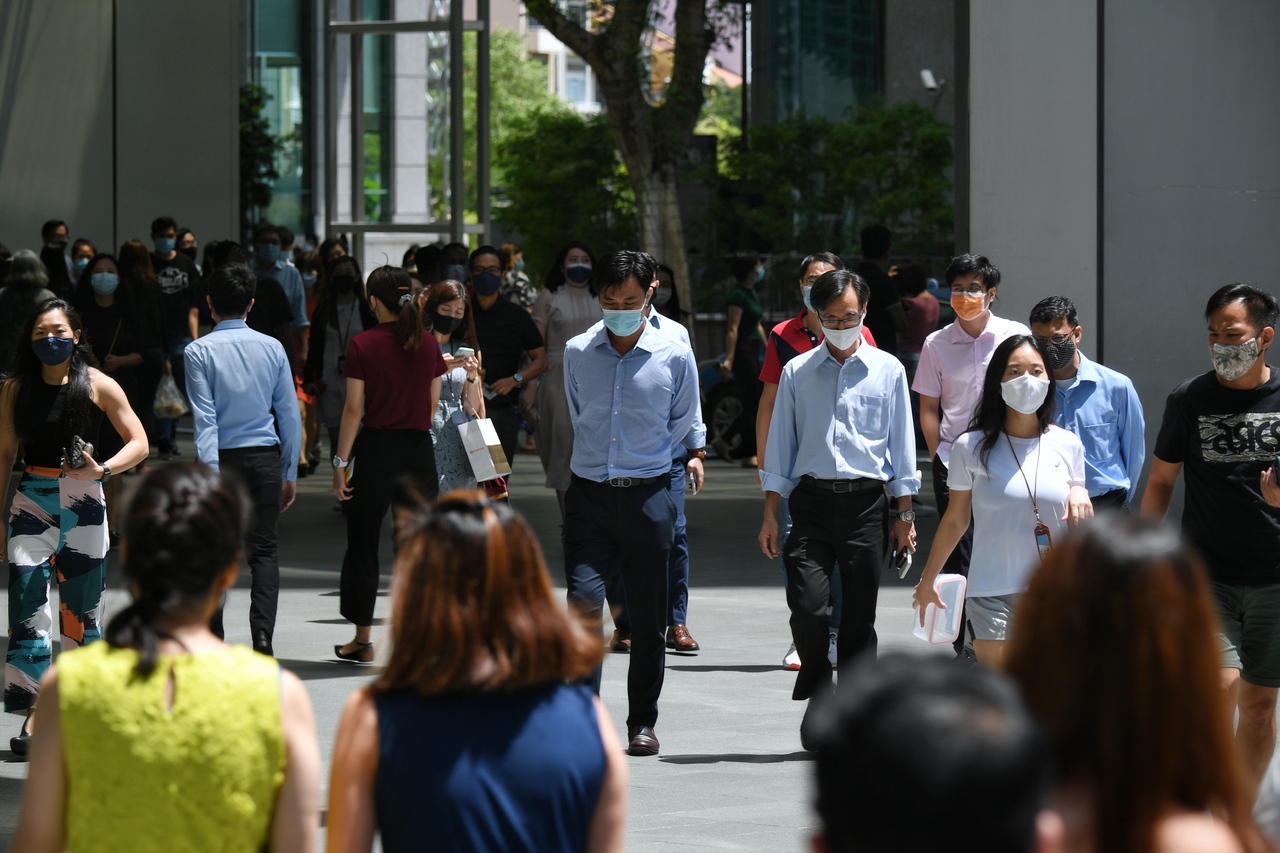More public servants quit last year: Chan Chun Sing
Sign up now: Get ST's newsletters delivered to your inbox

There is a risk of an increase in attrition as the economy recovers with the private sector offering more jobs.
PHOTO: ST FILE
SINGAPORE - The public sector has seen an increase in attrition across the board, with the largest generic scheme in the civil service seeing a 10-year high in resignation rate last year, minister-in-charge of the public service Chan Chun Sing said in Parliament on Tuesday (Feb 15).
The resignation rate in the Management Executive Scheme reached a 10-year peak of 9.9 per cent last year, and the attrition has clearly picked up momentum in the last six months.
Under the scheme, officers are deployed across a wide range of jobs in the civil service, such as in policymaking, administration, and operations. When contacted, the Public Service Division was unable to say how many officers are in the scheme.
Mr Chan added that specific segments such as infocommunication technology (ICT) are facing more pressures in the face of talent shortages.
The resignation rate for the ICT sector was higher than 9.9 per cent last year, he said, without specifying what the rate was.
The public sector, which includes the civil service, employs about 153,000 public officers working in 16 ministries and more than 50 statutory boards. The civil service employs about 87,000 officers.
Factors such as higher job pressures, pay and opportunities for professional development and progression have contributed to attrition from the public service.
Mr Chan said: "In particular, over the past two years, public officers have had to face intense pressure, working tirelessly to sustain the fight against Covid-19.
"At times, they also have to deal with anxious and even demanding members of the public in the course of their Covid-19-related work. The shift to remote work has also blurred the line between work and life."
There is also a risk of an increase in attrition as the economy recovers, and with the private sector offering more jobs.
Mr Chan added that the public service will review salaries and benefits of public officers and adjust them where necessary to keep them competitive.
To make work more interesting and fulfilling, job rotations and attachments outside the sector have also been expanded.
Despite the increased attrition, the general manpower level in the public sector now is still healthy, although there are two areas of concern, Mr Chan said.
One of them is localised shortages, and the other is the sector’s ability to deliver services and improve them in the longer-term, especially in the ICT sector.
He was responding to Mr Patrick Tay (Pioneer), who had asked whether any ministries, statutory boards or essential services are facing manpower issues.
Mr Chan said: “We are still able to hold up the system by redeploying and cross-deploying officers as needed to maintain the current level of service. But we must pay attention to the forward-looking services that we want to put in place to serve Singapore and Singaporeans better in time to come.”
Responding to Leader of the Opposition Pritam Singh, who had asked about strategies to attract ICT talent into the public sector, Mr Chan said the public sector will use a multi-pronged approach to attract ICT talent into the public service.
This includes hiring from the open market and helping employees to upgrade their skills. Another way is also to group similar projects together to help save costs and reduce demand of ICT manpower.
Mr Chan also responded to Mr Tay’s question on how work arrangements in the public sector can help to ensure officers’ mental health.
The minister noted that quite a lot of the officers will not be able to work from home.
But for those who can, the public service will try to “lock in some of these gains” where officers can have more flexible work arrangements transiting between home and the workplace, depending on the job demands and Covid-19 situation.
Amid the higher work demands, the public service will step up efforts to streamline processes and support staff health and mental well-being.
For example, regular webinars are conducted on topics related to well-being-related such as resilience and mindfulness, and a round-the-clock counselling hotline has also been set up, Mr Chan added.


